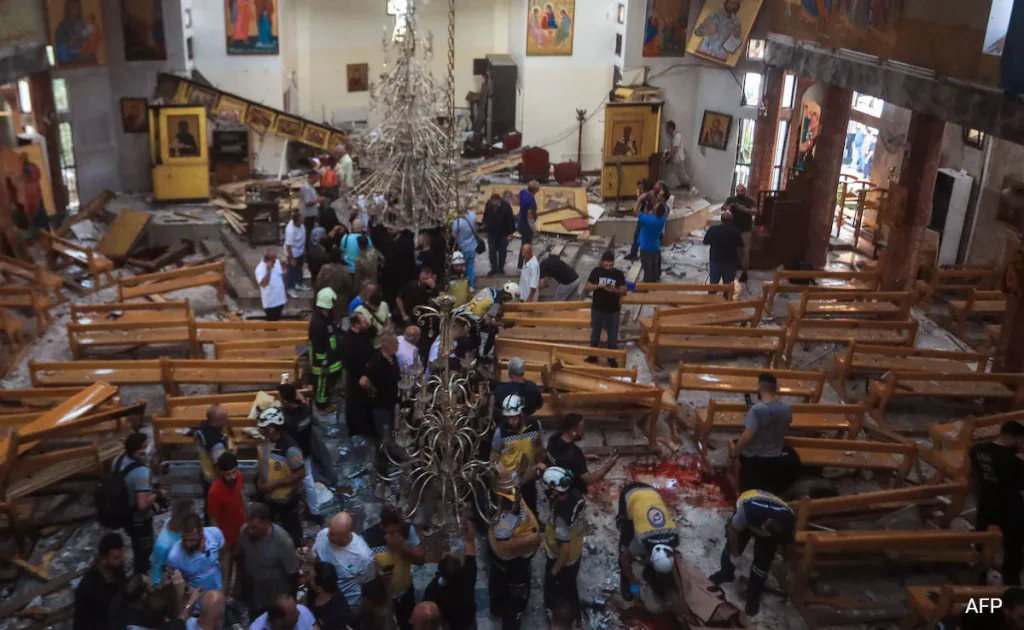Syrian church bombing sparks minority safety concerns

The Syrian Christian community is calling for protection after a suicide bombing at Saint Elias Church in Damascus killed at least 25 people and wounded over 60 others on June 22nd, Al Monitor via AFP reported on June 23rd.
The attack, which took place in the capital’s Dwelaa district, has raised renewed concerns over the safety of minority groups under Syria’s interim government.
Among the victims were eight members of one family, who died in the attack. Laure Nasr, 35, lost her husband, brother-in-law, and sister-in-law in the attack.
“I want [President] Ahmed al-Sharaa to personally bring me justice,” she said, speaking from her home where mourners gathered. “Isn’t he the president? Are we not a democratic state now?”
Nasr said the attacker “entered the house of God and opened fire.” She believes her husband and brother-in-law prevented further loss of life by stopping the assailant from going further into the church.
Authorities have blamed the Islamic State (IS) group for the attack, though the group has not yet claimed responsibility. The interim government said it would pursue those responsible and emphasised the need for national unity. “Let Daesh be eliminated from Syria,” Nasr added, using the Arabic acronym for IS.
Meanwhile, 21-year-old Jenny al-Haddad mourned her father, a government worker who regularly attended mass. “My father didn’t do anything wrong. He was praying in church,” she said. “Nothing is harder than living in a place where you do not feel safe. I no longer want to stay here.”
According to civil defence staff, human remains were recovered from the site after the rubble was cleared. Shops across the district remained closed.
The attack comes amid broader fears about minority safety in Syria. In recent months, over 1,700 mainly Alawite civilians were killed in sectarian violence, the Syrian Observatory for Human Rights has said. Deadly clashes involving the Druze community have also been reported.
Nebras Yusef, 35, who survived the church attack but lost six friends and neighbors, said the security situation had worsened over time. “Today, you can no longer protect yourself or feel safe when entering a church,” he said. “When you don’t feel safe in your belief or your ritual practices, you are a fourth-class citizen.”
Syria’s new leadership has not officially imposed restrictions on religious freedoms, but residents have cited increased incidents of intimidation and cultural enforcement, including full-body swimwear requirements on public beaches.
Before the war, Christians made up around one million of Syria’s population. Today, estimates suggest that number has dropped to around 300,000.
Al Monitor via AFP
Want to chase the pulse of North Africa?
Subscribe to receive our FREE weekly PDF magazine













